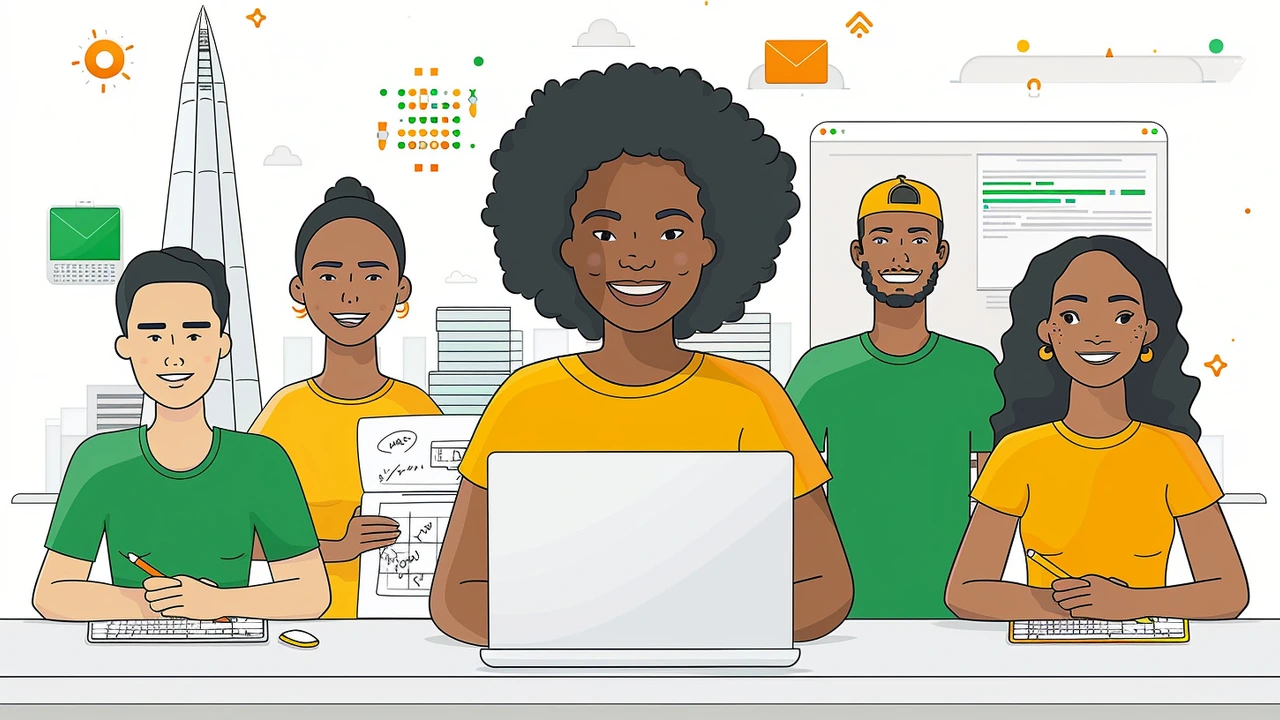Introduction: The Unstoppable Rise of Coding
In an era dominated by technology, understanding coding has become more than a skill—it's a language of the future. Every app we use, every website we visit, and even the appliances in our homes, work on code. It's fascinating how these languages, comprising just ones and zeros, can create such complex, beautiful, and functional systems. From small startups to global corporations, the demand for skilled programmers has surged, making coding an invaluable skill in the job market. The beauty of coding lies not just in job prospects but also in the creative freedom and problem-solving capabilities it offers.
The revolution doesn't stop there. Coding education has seen an overhaul, with resources now accessible to anyone with internet access. Platforms offering online courses, coding boot camps, and even YouTube tutorials have demystified programming, turning it from an elitist knowledge base into a universal skill set. This accessibility is paving the way for a more diverse and inclusive tech industry, promising a future where technology is created by all, for all.
Decoding the Languages of the Digital World
When diving into coding, the array of programming languages can be overwhelming. Each language has its purpose, strengths, and application area. For instance, JavaScript is the backbone of web development, powering interactive elements on websites. Python, known for its straightforward syntax, is widely used in data science, machine learning, and back-end web development. Meanwhile, languages like C++ and Java continue to dominate the fields of software development and mobile app creation.
The decision on which language to learn first depends on your goals. If web development interests you, starting with HTML, CSS, and JavaScript is a good idea. For software engineering or app development, languages like Python, Java, or Swift (for Apple devices) might be more apt. It's not just about learning a language; it's about understanding the logic and structure behind coding, which can be transferred across languages. This adaptability is key to thriving in the tech industry.
The Integral Role of Coding in Various Industries
Coding's influence stretches far beyond tech companies. It's at the heart of innovations in healthcare, finance, education, and even the arts. In healthcare, programmers are creating software that can predict patient deteriorations or improve diagnostic accuracy. The finance sector relies on code for everything from secure online transactions to complex algorithms that predict stock market trends. In education, e-learning platforms and educational software are making knowledge more accessible than ever. And in the arts, coders are experimenting with digital media to create interactive art installations and virtual reality experiences.
This widespread application of coding skills underscores their importance in shaping the future. By learning to code, you're not just opening doors to tech jobs; you're gaining a skill that can be applied in virtually any field. It's a testament to the versatility and universality of coding as a skill. Moreover, with the rise of AI and automation, the ability to understand and work alongside these technologies is becoming crucial. Coding is not just about writing lines of code; it's about conceptualizing problems and crafting innovative solutions.
Tips for Beginners: How to Start Your Coding Journey
Starting with coding might seem daunting, but it's all about taking the first step. Begin by choosing a programming language that aligns with your interests. Utilize the plethora of online resources available—online courses, tutorials, forums, and coding challenges. These can provide a structured learning path and community support. Practice regularly, as coding is a skill best learned through doing. Work on small projects, contribute to open-source code, or even try to replicate the functionality of applications you admire.
Don't be discouraged by challenges or failures; they're an integral part of the learning process. Coding requires patience, persistence, and a problem-solving mindset. Celebrate small victories, and gradually increase the complexity of projects as you become more comfortable. Remember, every expert coder started as a beginner. The key is to keep learning, experimenting, and pushing your boundaries.
Future Prospects: Coding as a Lifelong Learning Journey
The field of technology is constantly evolving, with new languages, tools, and practices emerging regularly. This dynamic nature of tech makes coding a lifelong learning journey. Staying updated with current trends, learning new languages, and refining problem-solving strategies are crucial for anyone in the coding profession. The ability to adapt and learn is what sets successful coders apart.
Moreover, as technology advances, the integration of coding in education, from early schooling to higher education, is becoming more pronounced. This trend emphasizes the need to equip future generations with the skills to navigate a digital world. Whether it's for professional development, personal projects, or contributing to societal advancement, coding skills will remain a pivotal force in the modern age.

